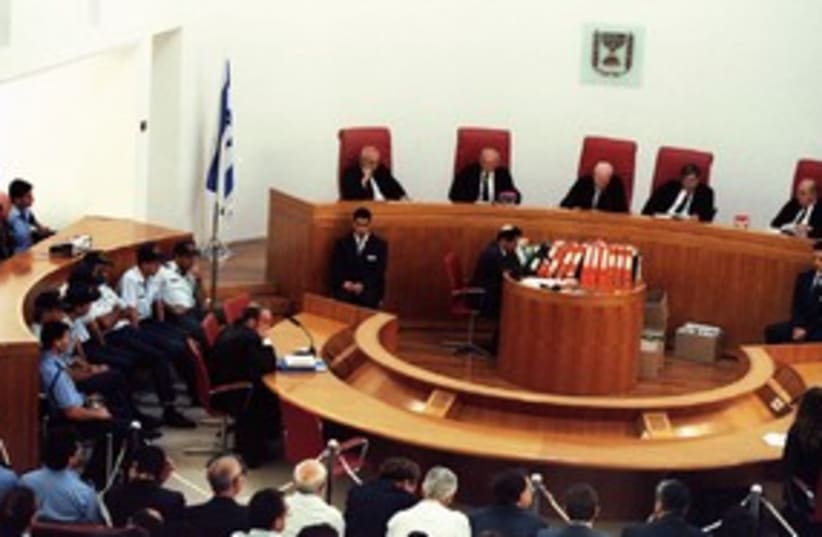MK Zehava Gal-On (Meretz) on Thursday slammed Wednesday's High Court of Justice decision upholding the Citizenship and Entry Law, saying the decision is a stain on Israel's law books. The court rejected a petition against the law, which makes Palestinians married to Israelis ineligible for Israeli citizenship. Gal-On filed the petition along with The Legal Center for Arab Minority Rights in Israel (Adalah).A majority of six justices versus five ruled that "the right to a family life does not necessarily have to be realized within the borders of Israel." In the majority opinion, Justice Asher Grunis wrote that "human rights" cannot be enacted at the price of "national suicide."RELATED:'We need citizenship law because of Palestinian terror'Law and disorderAs a result of legislation and public pressure against against it, Gal-On told Army Radio, "there is self-censorship in the court." Part of the decision to reject a petition against the citizenship law, she added, "is because the High Court's power has been weakened in the fight against racism."Gal-On said she opposes a right of return for Palestinian refugees to Israel and believes in the two-state solution so that they will have their own country to return to. The Jewish people have a right to a state, she added, "and this is our state. However, Israeli Arabs are also citizens in this country.""Preserving [Israeli Arabs'] rights does not threaten the country and I think that in order to strengthen Israel we must be stronger than our most basic fears. A dark stain was left on our law books," she added.In the minority decision, Supreme Court President Dorit Beinisch wrote that "the law should be canceled because it violates the right to equality."Ronen Shocal, chairman of the right-wing student group Im Tirtzu criticized the court's dissenting voters - and Beinisch in particular - calling their position "a disgrace liable to impose the death penalty on Zionism and the Jewish character of Israel.""We hope that Beinisch's retirement will signal the end of the anti-Zionist era in the High Court," he said.Education Minister Gideon Sa'ar rejected criticism from the Left, describing the attacks as drastic."Court decisions are attributed to political influence whenever [the court] does not operate as the radical left expects it to," Sa'ar said. "Respect for the rule of law and for judicial decisions cannot only be when those decisions are consistent with one's own world view."The Citizenship and Entry into Israel Law was first passed as a temporary order in 2003, and has since been extended several times. The law places restrictions on the automatic granting of Israeli citizenship and residency permits to spouses of Israeli citizens. Spouses who are inhabitants of the West Bank are ineligible.The state has argued in the past that Palestinian terrorist organizations have not let up on their intentions to perpetrate mass attacks in Israel and therefore the temporary legislation should not be rejected by the High Court of Justice.Adalah responded to the High Court rejection of its petition saying that the court approved a law "the likes of which does not exist in any democratic nation in the world."The organization slammed the law as "forbidding citizens to have a family life in Israel solely on the basis of the ethnic background of one of the spouses."The statement added: "This ruling proves to what extent the civil rights of the Arab minority in Israel have deteriorated to an unprecedented an extremely dangerous level."The Association for Civil Rights in Israel (ACRI) also leveled sharp criticism Thursday against the decision. The court, two ACRI attorneys wrote in a statement, "has failed to uphold basic human rights in the face of the tyranny of the Knesset majority.""It is a dark day for the protection of human rights and for the Israeli High Court of Justice," ACRI attorneys Dan Yakir and Oded Feller said. "The majority opinion has stamped its approval on a racist law, one [that] will harm the very texture of the lives of families whose only sin is the Palestinian blood that runs in their veins."Dan Izenberg and Rebecca Anna Stoil contributed to this report.
'Citizenship law decision a stain on Israeli law'
MK Gal-On, ACRI slam High Court decision to uphold law that excludes Palestinians married to Israelis from naturalizing.
